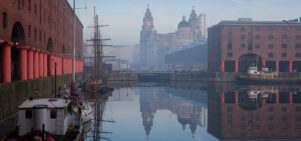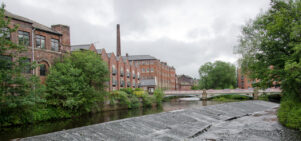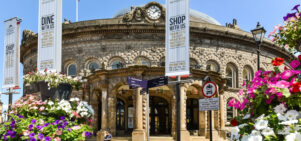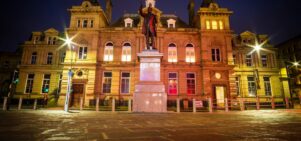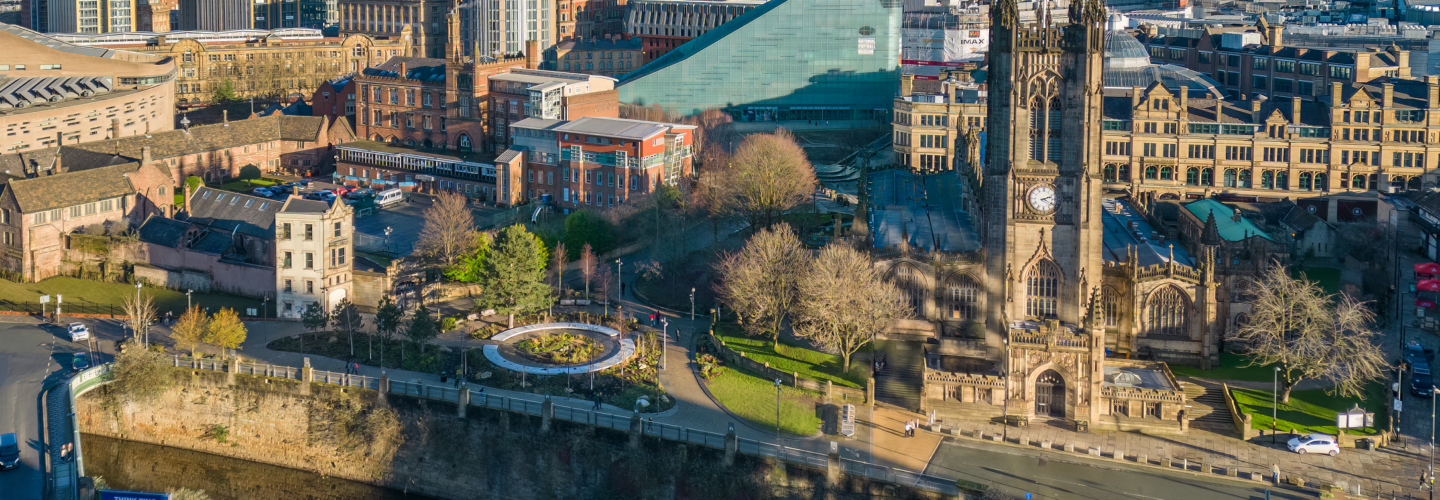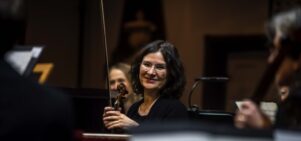Forever young: Benjamin Britten turns 100
Femke ColborneAs Opera North celebrates Benjamin Britten’s centenary with a trio of new productions, we talk to director Richard Mantle about the composer’s fascination with youth.
Everyone is talking about Benjamin Britten – no, not the film starring Brad Pitt where a man quite disconcertingly starts ageing backwards (that would be Benjamin Button), but the British composer best known for his pioneering operas. This year would have been Britten’s 100th birthday, and his work is being celebrated all over the world in what is probably the biggest ever global celebration of a single British composer. Britten had something in common with his almost-namesake Benjamin Button, though: a fascination with childhood and the innocence of youth. He devoted much of his life to working with young people, and some of his critics accused him of failing to ever really grow up, of maintaining a childlike, black-and-white view of the world. But it was his extensive work with young people and amateur musicians that led Britten to specialise in music involving a theatrical element – and ultimately shaped his pioneering approach to opera.
Opera North leads the centenary celebrations this year with a full season of three Britten productions: Peter Grimes, A Midsummer Night’s Dream and Death in Venice. The first is a revival of a 2006 production by Mamma Mia! director Phyllida Lloyd; A Midsummer Night’s Dream is another revival; and Death in Venice a brand new production. Its premiere on 17 October will mark a milestone for Opera North, as it will have performed all of Britten’s main stage operas.
Britten’s operas were revolutionary because of their focus on communicating a story. Most of them are notable, for example, for not containing any traditional arias (where a character is awarded the stage to indulge in a sort of musical soliloquy; generally a chance for the composer to show off). “Britten’s operas have a format unlike most other operas and there is always a very strong narrative,” says Richard Mantle, director of Opera North. “He often used literary links as a starting point and he wanted people to understand and be engaged with his operas as though they were going to a play. He always wrote operas to be accessible to the audience.”
He was a non-conformist; his operas nearly all had characters who are outsiders
Because of the wide range of themes Britten chose for his operas, the music also varies widely in character. “Other opera composers like Puccini and Verdi have a distinct, recognisable sound, but none of Britten’s operas really sound the same,” Mantle says. “Each of the three we are doing has a distinct musical character. In Peter Grimes, which is set in a fishing village, the sea lives in the opera and is absolutely in the music. But A Midsummer Night’s Dream is all about fairies, spells and magic, and the music is very different – with a translucent, magical quality. It doesn’t sound like the same composer.”
Peter Grimes, considered by many to be Britten’s magnum opus, is based on a poem by George Crabbe about a fisherman who becomes vilified by the local community after the death of one of his apprentices. The opera is set in a fictional village that bears a striking resemblance to Aldeburgh, Suffolk, where Britten grew up and where a popular annual music festival is still held in his name. As with many of Britten’s operas, the central character is an outsider who has been marginalised by society. Britten was something of an outsider himself: he was a conscientious objector and also maintained a homosexual relationship – with his great friend and musical collaborator, the tenor Peter Pears – at a time when homosexuality was still illegal.
“Britten was a non-conformist,” says Mantle. “His operas nearly all have a central character who is misunderstood or an outsider. Peter Grimes is about a misunderstood individual on the edge of a community; in Death in Venice, Aschenbach goes to Venice alone and has a very strange time. Britten was not a loner – he had many good friends and was a great collaborator – but he could be quite difficult with his friends sometimes.”
One aspect of Britten’s character that has come under close scrutiny in recent years is his relationship with young boys. John Bridcut’s 2006 book Britten’s Children rocked the musical world with its allegations that the composer had relationships with several adolescent boys. Should we be questioning whether it is appropriate to celebrate a man whose past is shrouded in such controversy, particularly in light of the recent Jimmy Savile revelations?
Mantle doesn’t think so. “I don’t think we need to talk about his relationship with boys,” he says. “Britten enjoyed young people’s company. There are many pictures that prove that; he believed in young people. But there is no evidence of any impropriety on his part.” Mantle admits that, to the uneducated listener, Britten might not be the most instantly accessible composer. “There’s a bit of a Marmite thing with Britten,” he says. “A lot of people think Britten is not for them, but when they engage with the music they find it can be an incredible experience, especially in the theatrical works. His music brings the drama alive in a way that most other composers can’t even come close to.”
He has high hopes that the opera revolution started by Britten will continue well into the future. “Opera has an awful lot to say and many operas offer very relevant critiques of the times they were written in,” he says. “Britten’s operas in particular are all about either issues or places we can all relate to. Opera is a powerful way to tell fantastic stories and the music is a vehicle for accessing the narrative. It is a very powerful and transforming medium.”

